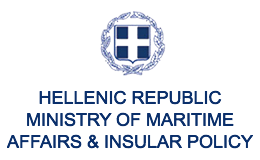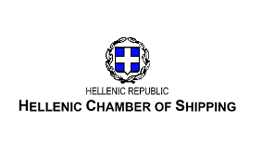από τον Συντονιστή του Συνεδρίου: Yuri Bender
Aρχισυντάκτη Professional Wealth Management at Financial Times
Delegates to the inaugural Slide2Open Shipping Finance Conference 2018, recently held in Athens, were party to a deep dialogue between ship owners, financiers, consultants and technology companies.
The main themes revealed from the panel discussions and presentations were the need to broaden the search for vessel finance from traditional shipping loans to leases and fund investments; the imperative to digitalise and stay abreast of technological innovations; and the increased focus on new regulations, especially regarding environmental challenges including sulphur emissions, and financial products.
Crucial to maintaining a healthy balance in the industry was the goal of reducing the pace of growth of the global fleet in order to combat over-supply of vessels, said Dr Martin Stopford, conference Chairman and non-executive President of Clarkson Research Services, which tracks ship industry trends.
“The surplus has been reduced, but we still have a 16 percent surplus capacity to get rid of,” he warned while stressing the industry is moving in the right direction.
Leadership of the maritime world continues to move from the Atlantic to Asia, said Dr Stopford, with Asia today accounting for more than 60 percent control of seaborne trade, compared to the almost total Atlantic dominance of the 1950s. Nevertheless, 290 new shipping companies have been created in the port of Piraeus during the last two years, according to Panagiotis Koroumplis, Minister of Maritime Affairs and Insular Policy, who addressed the event, adding that the Greek government was involved in a series of roadshows following the UK’s Brexit referendum, persuading international companies that Greece is a safe place to invest.
In an onstage interview, John Platsidakis, chairman of industry body Intercargo, vociferously dismissed the often-cited criticism that Greek shipowning families do not pay their fair share of taxes.
“Not only is Greek tonnage tax higher than in most other countries, but we have made it clear that we have agreed to pay double,” with this voluntary agreement also applying to foreign-owned ships, said Mr Platsidakis. He added that the Greek industry has always turned down official offers of help, including a European Union policy of offering travel expenses to shipping crews, which was flatly rejected by a Greek delegation, which believed the industry would be healthier and more efficient if it mustered its own resources for growth. “We create wealth,” he stated, while emphasising the aims of major shipowners to improve the quality of industry personnel through educational programmes.
The key problem which the shipping industry is encountering today, according to several conference speakers, and the main issue voiced by Basil Karatzas, CEO of consultancy Karatzas Marine Advisors, was one of finance, with banks experiencing massive defaults in shipping loan portfolios back in 2008, before waiting for a recovery which never arrived.
He described a finance market moving away from traditional lending towards leasing companies, tend to be based in Japan and China, and other vehicles including private equity funds. Leases are typically provided by firms such as China’s Bocomm Shipping Leasing, whose executive manager for Europe, Cruise Chi, also addressed the summit. According to Mr Chi, 70 per cent of the business conducted by the 8,000 leasing companies in China is with European clients.
Delegates to the inaugural Slide2Open Shipping Finance Conference 2018, recently held in Athens, were party to a deep dialogue between ship owners, financiers, consultants and technology companies.
The main themes revealed from the panel discussions and presentations were the need to broaden the search for vessel finance from traditional shipping loans to leases and fund investments; the imperative to digitalise and stay abreast of technological innovations; and the increased focus on new regulations, especially regarding environmental challenges including sulphur emissions, and financial products.
Crucial to maintaining a healthy balance in the industry was the goal of reducing the pace of growth of the global fleet in order to combat over-supply of vessels, said Dr Martin Stopford, conference Chairman and non-executive President of Clarkson Research Services, which tracks ship industry trends.
“The surplus has been reduced, but we still have a 16 per cent surplus capacity to get rid of,” he warned, while stressing the industry is moving in the right direction.
Leadership of the maritime world continues to move from the Atlantic to Asia, said Dr Stopford, with Asia today accounting for more than 60 per cent control of seaborne trade, compared to the almost total Atlantic dominance of the 1950s. Nevertheless, 290 new shipping companies have been created in the port of Piraeus during the last two years, according to Panagiotis Koroumplis, Minister of Maritime Affairs and Insular Policy, who addressed the event, adding that the Greek government was involved in a series of roadshows following the UK’s Brexit referendum, persuading international companies that Greece is a safe place to invest.
In an onstage interview, John Platsidakis, chairman of industry body Intercargo, vociferously dismissed the often-cited criticism that Greek shipowning families do not pay their fair share of taxes.
“Not only is Greek tonnage tax higher than in most other countries, but we have made it clear that we have agreed to pay double,” with this voluntary agreement also applying to foreign-owned ships, said Mr Platsidakis. He added that the Greek industry has always turned down official offers of help, including a European Union policy of offering travel expenses to shipping crews, which was flatly rejected by a Greek delegation, which believed the industry would be healthier and more efficient if it mustered its own resources for growth. “We create wealth,” he stated, while emphasising the aims of major shipowners to improve the quality of industry personnel through educational programmes.
The key problem which the shipping industry is encountering today, according to several conference speakers, and the main issue voiced by Basil Karatzas, CEO of consultancy Karatzas Marine Advisors, was one of finance, with banks experiencing massive defaults in shipping loan portfolios back in 2008, before waiting for a recovery which never arrived.
He described a finance market moving away from traditional lending towards leasing companies, tending to be based in Japan and China, and other vehicles including private equity funds. Leases are typically provided by firms such as China’s Bucomm Shipping Leasing, whose executive manager for Europe, Cruise Chi, also addressed the summit. According to Mr Chi, 70 per cent of the business conducted by the 8,000 leasing companies in China is with European clients.
Prof. Stopford’s panel turned into more practical issues, from forms of equity to the impact of IFRS16 on shipping. It is clear that the past model of relationship banking has faded, together with the personal guarantees it entailed, giving its place to balance sheet lending and new forms of finance. In George Gourdomichalis’s words, the world has changed, there is available finance out there, to each his own. However, cash is always king and internal equity is still the cheapest form of equity. The new world of shipping requires a shift from past business models.
The use of data and transformation from traditional to “smart” shipping was the key theme of afternoon sessions, with a broad agreement from speakers that a blend must be found between the digitalised and old school approach of seamanship, in order to avoid accidents and adhere to regulations concerning safety and environmental issues.
But some technology providers also sounded a warning bell to ship owners not to run ahead of themselves. “You should take as much data to the cloud as you can and keep the amount of equipment on the ship as simple and minimal as possible,” said Greg Atkinson, Director and Chief Technology Officer of Japanese firm Eco Marine Power. “We need a vision of how we can upgrade in the future.”
The use of data and transformation from traditional to “smart” shipping was the key theme of afternoon sessions, with a broad agreement from speakers that a blend must be found between the digitalised and old-school approach of seamanship, in order to avoid accidents and adhere to regulations concerning safety and environmental issues.
But some technology providers also sounded a warning bell to ship owners not to run ahead of themselves. “You should take as much data to the cloud as you can and keep the amount of equipment on the ship as simple and minimal as possible,” said Greg Atkinson, Director and Chief Technology Officer of Japanese firm Eco Marine Power. “We need a vision of how we can upgrade in the future.”












































